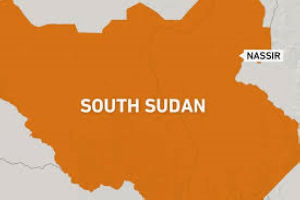Dr Ephraim Avea Nsoh, the Upper East Regional Minister on Thursday warned that henceforth fuel smugglers and people who hoard fuel when caught would not be spared by the law.
Of late in the Upper East Region there have been constant shortage of the commodity due to smuggling to neighbouring countries. The practice is very common at Paga and Bawku which are sharing borders with neighbouring countries like Burkina Faso and Togo where the commodity is in high demand.
The Regional Minister gave the warning when he met with fuel station managers in Bolgatanga for him to establish the cause of the problem and to see how he could address it.
Dr Nsoh told the fuel station managers to ensure that their fuel station attendants stop dealing with middlemen who purchase the product in large quantities particularly when they sensed that it was likely to be increased.
He noted that it was the ordinary people who suffered the greatest when such situations occurred and indicated that in the deprived areas of the Region, motorbikes are used as means of transport to convey patient’s particularly pregnant women to the health facilities.
“As a result of the consistent shortage of fuel, it makes it impossible for patient's in the remote areas to be transported to the health facilities. We cannot allow this to continue to happen”.
He bemoaned the spate of fuel stations at Paga and Bawku saying as Regional Minister, he will ensure that those who did not have genuine permit and were doing illegal business were weeded out.
He impressed upon the fuel station managers to do everything possible to ensure that there is a consistent supply of fuel in the region, stressing that "fuel is the central component of our development efforts which should not be toyed with by selfish individuals at the expense of the ordinary people”
The Regional Minister admonished the fuel station managers to form associations and to discuss matters affecting them and to also consult the Regional Coordinating Council for support if the need be.
The Fuel Station managers assured the Minister that they would comply with his directives but blamed part of the problem on the late arrival of the product and the granting of fuel permits to many people to establish fuel stations closer to the border towns which middle men buy in larger quantities to into the border towns to sell.
Regional News of Saturday, 23 March 2013
Source: Samuel Akapule, Bolgatanga












